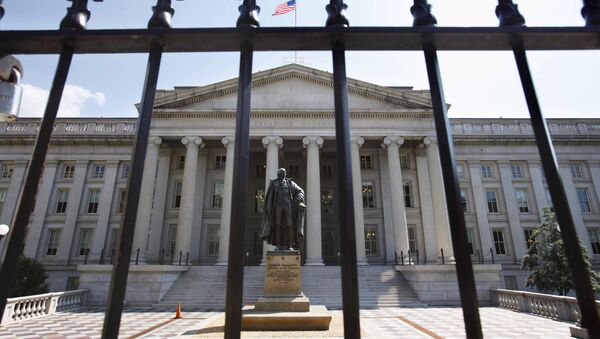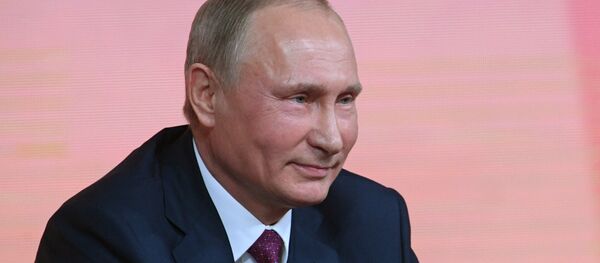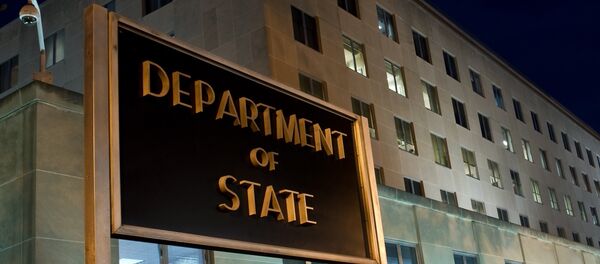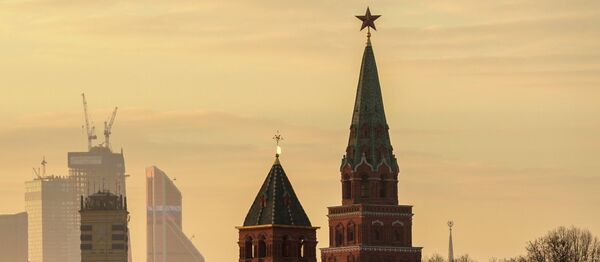On Monday, the Treasury published a declassified nine page document of 114 Russian politicians and officials and 96 Russian businessmen who may be subject to new restrictions. The same day, the State Department announced that existing restrictions in the Countering America's Adversaries Through Sanctions Act (CAATSA), the law pursuant to which the Treasury created its list, were sufficient, and that new restrictions were unnecessary for the moment. Moscow has slammed the document, describing its release as a "road to nowhere," and warning that it may be an attempt to interfere Russia's upcoming presidential elections.
Who's on the List?
Given the high-profile names listed in the report, Moscow's concerns come as no surprise. Among Russian government officials in the dossier are Prime Minister Dmity Medvedev, the entire cabinet of ministers, and representatives of the presidential administration, including presidential press secretary Dmitry Peskov.
What's more, the report includes Russian Duma Speaker Vyacheslav Voldin and Valentina Matvienko, Chair of the Federation Council, Russia's Upper House of parliament.
Other senior officials in the list include Sergei Naryshkin, director of Russia's Foreign Intelligence Service, special presidential representative Sergei Ivanov, Russian Security Council Secretary Nikolai Patrushev and his deputy Rashid Nurgaliyev, Defense Minister Sergei Shoigu, Chairman of the Russian General Staff Valery Gerasimov, military intelligence director Igor Korobov, Federal Protective Service Director Dmitri Kochnev, and Federal Security Service Director Alexander Bortnikov.
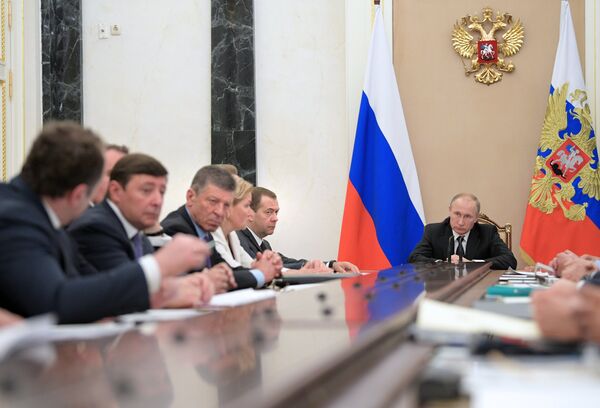
Ironically, Russian President Vladimir Putin was not included in the list, an omission he jokingly said made him "sad."
Business Leaders
On the business side of things, the list includes the heads of a series of major Russian state-owned companies, including Russian Railways, Aeroflot, the United Aircraft Corporation, and others.
The Treasury document includes a total of 96 major Russian businessmen, who it refers to as 'oligarchs'. The report's sole listed criteria for entry is a net worth of at least one billion dollars. The list includes business leaders including Elena Baturina, Oleg Deripaska, Roman Abramovich, Vladimir Potanin, German Gref, Leonid Fedun, Sergei Galitsky, Alisher Usmanov, Vladimir Evtushenkov, Alexei Miller, Igor Sechin, Mikhail Fridman, Vladimir Lisin, Mikhail Gutseriev, Suleiman Kerimov, Andrei Kostin and Mikhail Prokhorov, and others.
In all, 18 of the officials and businessmen listed in the document are already subject to sanctions under other US sanctions programs.
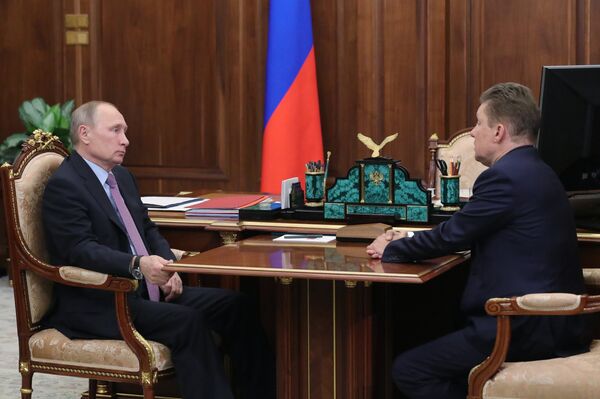
CAATSA: Congressional Effort to Box In Trump and US Allies on Russia
The Countering America's Adversaries Through Sanctions Act, adopted in August 2017, faced objections from the White House long before President Trump signed it into law. Prior to signing on, Trump called the bill "significantly flawed" and complained that it included "a number of clearly unconstitutional provisions" encroaching "on the executive branch's authority to negotiate."
However, with the bill receiving overwhelming bipartisan support in the House (effectively disarming the president's right to veto), Trump, eager to avoid claims of collusion with Moscow, signed the bill into law. Through CAATSA, Congress effectively narrowed the freedom of maneuver not only for the president, but for Washington's wayward European allies, calling for a softening of sanctions, as well.
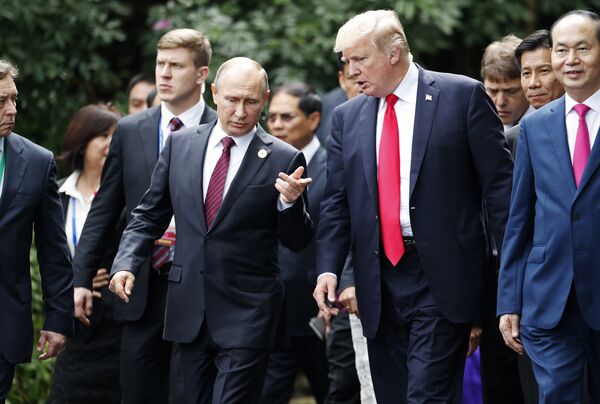
Treasury Report Does Not Amount to New Sanctions…Yet
On Monday, US media reported that the Trump administration had briefed US lawmakers on the prospects of anti-Russian sanctions under CAATSA. The same day, the State Department released a statement noting that the existing measures employed under the sanctions law were working, and that there was no need for any further sanctions against Moscow at this time.
For now, observers say, Congress seems to want to know more about the wealth and sources of income of Russia's elite than anything else. According to the Atlantic Council, the Washington-based think tank which came up with the 'Kremlin Report' designation, that list consists of about 40-50 persons, which together with their families may rise to about 300 people in total.
In any case, the Treasury has insisted that its dossier is "not a sanctions list," and that "the inclusion of individuals or entities…does not and in no way should be interpreted to impose sanctions on those individuals or entities."
On the eve of the list's publication, Daniel Fried, former assistant secretary of state and head of the State Department's Russia sanctions office, said that the Treasury report's key goal was to "name and shame" Russian "oligarchs," and to send a message that "Putin's aggression in terms of Russian interference in our elections will be very costly to them." Furthermore, according to Fried, given the Russian elite's anxieties about being included in this list, the dossier is a "signal" to Russia's political and business classes to 'maintain a distance' from the Russian president.
'Game of Nerves'
According to some Russian observers, including Alexei Panich, a partner at the Herbert Smith Freehills global law firm, the Treasury dossier is an obvious attempt to pressure Russia's elite into distancing itself from a Russian foreign policy which Washington finds unacceptable. The list, he noted, serves to create a certain tension which little else, including actual sanctions, could accomplish.
"When sanctions are applied, everything is clear: what is unacceptable, what isn't. But when it's unclear whether sanctions will follow or not, and if yes, what kind, a threat, an ambiguity emerges in the [affected] person's position. And this was the purpose of creating such a list," the lawyer explained.
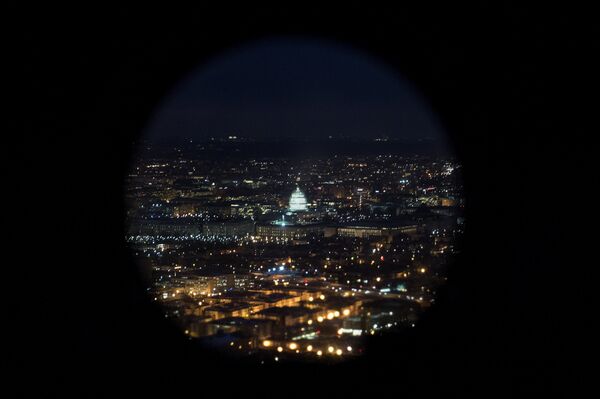
Sputnik has asked both the Treasury and the State departments to provide it with details on the dossier's explicit purpose, commentary about the timing of its release, and what impact it may have on Russian-US relations. As of this writing, neither US government office has replied.

